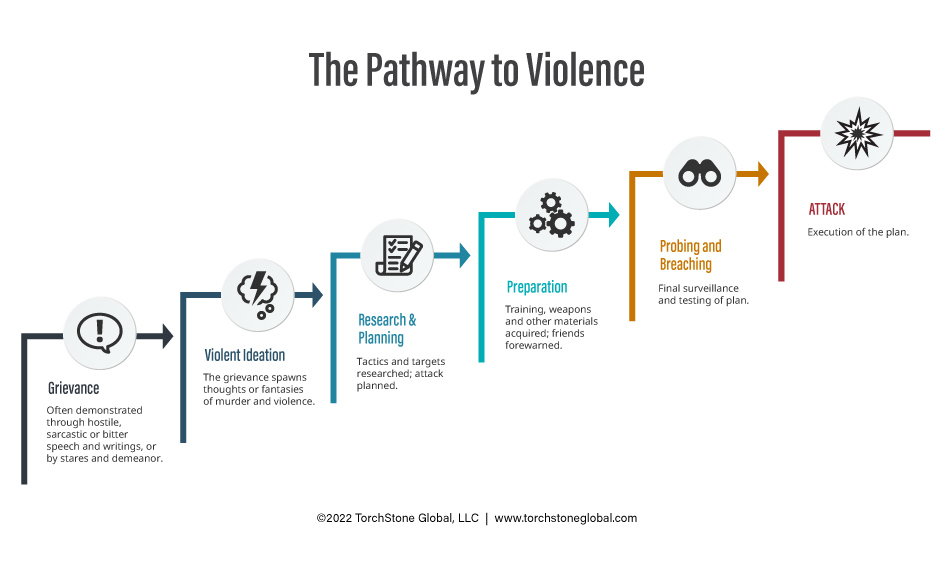
Hedging Your Bets: Tried and True Security Approaches to Address Sports Gambling Threats
By TorchStone Senior Analyst, Ben West
Gambling has become a more prominent part of college and professional sports in recent years, and it is contributing to an increase in threats and harassment against coaches, staff, players, and their families. While gambling has always been a part of sports (often associated with organized criminal groups) it has grown tremendously in the United States since a 2018 Supreme Court decision opened the door to states to legalize betting. An industry that was previously constrained to Nevada and a few other exceptions expanded to 38 states in the years since the 2018 decision. As a result, the sports betting industry grew 45% from 2022 to 2023 with no signs of slowing down so far in 2024.
Along with the revenue growth has come an increase in gambling-related harassment and threats. As of September 2023, an NCAA survey showed that 25% of top-tier college athletic programs were aware of threats or harassment targeting their players linked to gambling. Professional sports associations have not released statistics on gambling-related threats to players, coaches, and staff, but anecdotal evidence suggests that it is certainly impacting professional sports, too.
Violent Distractions to the Game
In April 2023, NBA player Chris Boucher of the Toronto Raptors revealed that he had received a harassing message from a person angry over a lost bet on how many points he would score in a game. In March 2023, Washington Wizards player Bradley Beal got into an altercation with a fan who made a disparaging post-game remark about losing a bet.
In the most recent case, Cleveland Cavaliers head coach, J.B. Bickerstaff, said that he has received threats from gamblers. In a March 2024 interview, Bickerstaff revealed that gamblers called him on his personal phone number and sent him, “crazy messages about where I live and my kids and all that stuff.” He admitted that threats associated with sports gambling are a distraction—not just to himself, but to other coaches, staff, officials, players, and family members, who are also targets of threats. Bickerstaff reported threats to security, who managed to track down the gambler, but there were no charges. Verbal and written threats are difficult to prosecute and, even when prosecutions are successful, sentencing is usually light—as demonstrated in the example below.
The most well-documented cases of gambling-motivated harassment of athletes came in a February 2020 federal criminal complaint against the well-known sports better Benjamin “Parlay” Patz. Patz had become well known in the online sports gambling world as a 23-year-old overnight sensation, winning over $1 million in a short time. However, according to the complaint, by March 2019 he began sending direct messages to college athletes on Instagram threatening the kill them. He tended to use similar language in each message, threatening to enter their home while they slept and slit their throat, or using graphic language to describe other violent acts. Over the course of six months in 2019, investigators linked Patz to over 300 threatening messages to college and professional athletes, as well as their loved ones.
While the 2020 complaint does not suggest Patz tried to use the threats of violence to change the outcome of events to his benefit, the threats were certainly linked to his gambling. After obtaining a warrant to search his various online accounts, investigators determined that Patz regularly threatened athletes within hours of losing bets on games in which they played. In the end, Patz received a 36-month probation sentence in 2021 that included a ban on gambling activities.
In some ways, the 2018 Supreme Court decision to lower the barriers to sports betting was seen as a way to increase the integrity of betting on sports and reduce threats to those involved. In the mid-2000s, former NBA referee Tim Donaghy alleged that organized criminals threatened to harm his family if he did not help them win sports bets. This controversial case is one of the clearest examples of gambling undermining the integrity and safety of those involved with sports—and it happened when sports gambling was heavily restricted. Many argued that reducing the barriers of sports betting and putting it under state control would regulate an illegal activity that was going to happen anyway. Bringing it into the light of day would help reform sports betting and remove it from the grips of organized criminals and others who had a reputation for using intimidation and violence to win profits.
New Threat, Tried and Tested Response
It is too early to say for sure what impact the 2018 Supreme Court decision will have on the safety of those involved in sports. Based on some early statistics and anecdotal evidence, it seems that bringing sports gambling out into the light of day may have also brought threats associated with sports gambling out into the open, too. Fortunately, the threats publicized so far appear to have been the result of heated emotions from people who had no intention of violence rather than the more calculated and capable threats from organized criminals.
However, security professionals can not dismiss threats from sports gamblers. During Super Bowl LV in 2021, Yuri Andrade demonstrated that sports gamblers are willing to take matters into their own hands when it comes to the outcome of a bet. Andrade disrupted play when he ran onto the field in a revealing garment after placing $50,000 on a prop bet that there would be a streaker during the game. Fortunately, his case set a precedent against interfering in a bet since the platform that made the booking refused to pay out.
Proposition bets, better known as “prop bets” are wagers placed on the performance of specific players during a specific match or series. Due to their focus on individual players, they seem to be a larger factor when it comes to sport-gambling-related threats. As a result, some states have banned, or are considering banning prop bets.
Additionally, and more importantly, people who lose bets on sports can end up on The Pathway to Violence. Violence and attacks do not come out of thin air. They typically follow an escalatory pattern that starts with a grievance (for example, losing a sports bet) and grows more serious from there. All of the examples of threats and harassment associated with sports gambling listed above demonstrate the presence of the first step along the pathway to violence: a grievance.
 Losing tens or even hundreds of thousands of dollars on a bet is, for most people, a disastrous financial outcome that could cause them to lose their jobs, property, and personal relationships. While gamblers have nobody to blame but themselves for their losses, it is clear that at least a few sports gamblers have taken out their frustration on the athletes or coaches that they bet on (or against). Several of them have clearly progressed to violent ideation, as demonstrated by the over 300 people Patz targeted with threatening language linked to his gambling. From a threat prevention point of view, this is not all too different from an anti-government extremist who has a grievance against a political figure—or a fanatical admirer of a celebrity who perceives unanswered letters as a personal rejection.
Losing tens or even hundreds of thousands of dollars on a bet is, for most people, a disastrous financial outcome that could cause them to lose their jobs, property, and personal relationships. While gamblers have nobody to blame but themselves for their losses, it is clear that at least a few sports gamblers have taken out their frustration on the athletes or coaches that they bet on (or against). Several of them have clearly progressed to violent ideation, as demonstrated by the over 300 people Patz targeted with threatening language linked to his gambling. From a threat prevention point of view, this is not all too different from an anti-government extremist who has a grievance against a political figure—or a fanatical admirer of a celebrity who perceives unanswered letters as a personal rejection.
Regardless of the cause, grievance and violent ideation can be the first step along the pathway to violence. It is at this point that security professionals, and specifically protective intelligence professionals, can identify potential threats and begin tracking them. Once an athlete, coach, or family member identifies a threat linked to sports gambling, security professionals can assess the threat. Who is the person responsible for the threat? Are they involved in gambling and, if so, how intensely? Are they at risk of suffering life-altering changes because of their gambling? Do they have a criminal background or history of violence that would give more weight to their threat? Do they target specific players in prop bets? Investigating these questions and more provides context around a threat that might just consist of a few words. Security professionals can use investigations when coordinating with teams, venues, and league associations to determine which individuals should be watched more closely, banned from events, or reported to the police.
Sports Gambling is Ultimately Just One of Many Threats Athletes Face
Harassment of high-profile athletes is nothing new—angry fans, rivalries, fanaticism, and desire for wealth have contributed to threats against athletes for as long as there has been competition. A mentally unstable, obsessed fan was responsible for the stabbing attack that essentially ended Monica Seles’ tennis career in 1993 and an altercation at a night club in 2000 resulted in NBA player Paul Pierce getting stabbed multiple times. Organized criminals are also still attracted to professional athletes outside of gambling: In March 2024, Spanish police arrested a criminal gang that specifically targeted the homes of professional soccer players in upscale Madrid residential areas, resulting in hundreds of thousands of euros in cash and valuables.
The increase in sports gambling adds a new financially motivated threat to the already challenging job of protecting athletes and sporting venues. However, with the right approach, it is a threat that can be managed.
